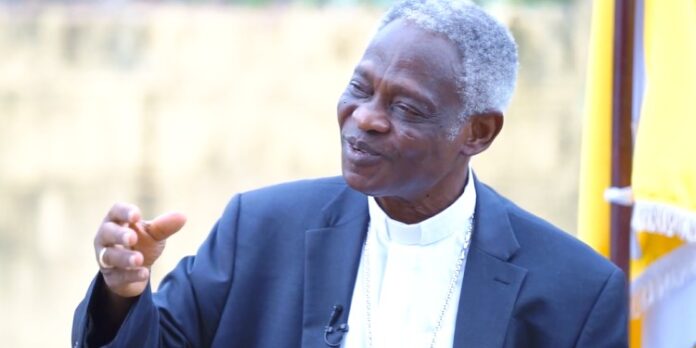His Eminence Cardinal Peter Kodwo Appiah Turkson, Chancellor of the Pontifical Academy of Sciences and Social Sciences, has urged Ghanaians to reflect deeply on the country’s historical choices—especially the continued reverence for individuals associated with military coups.
In an interview on Channel One TV, Cardinal Turkson raised concerns about the inconsistency between Ghana’s democratic values and the naming of national landmarks after coup plotters.
Referencing Ghana’s formal commitment to regional protocols that reject unconstitutional changes of government, he highlighted what he called a “national contradiction.”
“For us in Ghana, it’s a conversation. I’m not holding anybody for criticism. But it’s an introspection that we need to make. Revisiting the past—did the coups promote democracy or the common well-being? We can evaluate all of those,” he said.
“Lately, of course, Ghana—we joined the sub-region in adopting measures that discourage coup d’états. Then for us, it’s an irony. That we have a document that discourages coups d’état with other regions in the region.”
Cardinal Turkson pointed to Kotoka International Airport, named after Lieutenant General Emmanuel Kwasi Kotoka, a key figure in the 1966 military coup that overthrew President Kwame Nkrumah.
“But the name of our airport [Kotoka International Airport], the first point of entry into Ghana, is named after a coup maker. That doesn’t gel. To dissociate the nation from a coup d’état and still idolise a figure who represents this.”
“The governments in the past may have had a reason to do it, but if we are resetting, then we have to do a full review of the history and be able to decipher values and things which are not so [in] promotion of the value system we have.”
Cardinal Turkson’s remarks add renewed weight to ongoing public debates about Ghana’s historical legacy, especially as the nation continues to champion democratic ideals across Africa.
His call for introspection echoes growing calls for a national conversation on how history, memory, and symbolism shape Ghana’s identity today.
Source: Channel1news


